- Home
- Heather Graham
The Night Is Alive koh-10 Page 2
The Night Is Alive koh-10 Read online
Page 2
Stiles didn’t kill puppies; he used puppies to lure young people to his van. They’d rescued a litter of golden retriever pups and their mom when they’d found Stiles and Joshua Madsen.
Malachi didn’t consider himself particularly brilliant in finding Stiles. The police investigative work had been excellent. They’d narrowed down the white vans in the city, thanks to the keen eye of the neighbor who’d managed to give them a partial on the license plate. Soil found on one of the victims had placed him in a certain area.
Malachi had known the area.
And he lived not twenty miles away in a home that was over two-and-a-half centuries old and came complete with pocket doors so that it could serve as a tavern, way station, home and hideout when need be. And it also came with Zachary Albright, Revolutionary spy and resident ghost.
No need to try explaining that to Andy, even if they were friends, or any of the other cops. Because, frankly, Zachary didn’t have all the answers; being dead didn’t make him omniscient. Just like he’d been in life, Zachary was a passionate man with a strong sense of right and wrong. He wandered the grounds, and he’d been the one to note the reclusive hunting lodge near the river. He’d suggested it to Malachi, and Malachi had remembered it—yes, the perfect place to bring a victim. Cries couldn’t be heard and the sure-flowing water was always ready to wash away an abundance of evidence.
It occurred to him that he really shouldn’t be thanked; he’d been observing the comings and goings on the trail when he was spotted by Stiles. He’d been forced to kill Stiles or be killed himself. The trail had led to a run-down shack but there’d been no sign of the missing boy. Police had searched the woods. Because of the “hideaway” in his own home—floorboards that lifted to reveal a six-by-six hidden room below—he’d begun to tear apart the shack. And he’d found Joshua Madsen, bound hand and foot, dehydrated, unconscious...but still alive.
Kids were resilient, he told himself. And this time, Stiles hadn’t had a chance to abuse the boy. They got him to the hospital and he’d been returned to the loving arms of his family. He’d make it, Malachi believed, without carrying the kind of abuse that might have made him an abuser himself.
Malachi wished he could say that about all kids who were abducted.
It was late, past midnight, and once he took the ramp off I-64, the country road that would take him home was dark. He turned down the air-conditioning in his car. Summer was quickly changing into fall.
He pulled into his drive and entered the old house he’d inherited from his uncle, an academic who’d never married, thus leaving him the place in his will. Malachi had spent time with him there from when he was a kid. He’d loved it, and his parents had owned a home just minutes away in a suburb of Richmond. He usually kept the pocket doors open. While the original structure had been maintained, it was also a home. It had always been a home, even when the original inhabitants had opened it as a tavern because of the economy. Yep, things didn’t really change. Back in the 1700s, sometimes the only way to survive had been to serve up good old country fare and lots of locally brewed ale and use the home itself as income.
Malachi picked up his mail and dropped his keys on the side table as he walked in. He was immediately accosted by Zachary. Once, Malachi had been unnerved by the ghost. Now he was accustomed to Zachary, clad in the black frock coat and silk vest in which he’d been buried out back in the family cemetery.
“You found him?” Zachary asked anxiously.
“We did. Thank you. If you hadn’t mentioned that place—”
“You would’ve thought of it. Eventually.”
“And the kid might have been dead by then.”
“Your jacket!” Zachary said. He touched Malachi’s arm. Malachi felt the movement of air around him, nothing else.
“The killer fired at me.”
“Good God, man, he was close!”
“Too close. I shot back. He’s dead.”
“Quite fine!”
Malachi shook his head. “I didn’t mean to kill him. We hadn’t found the boy yet. But I assumed someone built the shack on the lines of old places like this, and I was right. Joshua Madsen was in the hideaway.”
“So you saved him. Are you injured?”
“Only my pride. I didn’t think Stiles had seen me. I was trying to watch the place and get closer, and I didn’t realize he’d come out back. Not until the bullet grazed my shoulder. I liked this jacket—not as much as uninjured flesh, but—”
“Then, all ended well,” Zachary broke in, pleased. “I’m out to tell Genevieve!”
The ghost turned and left him, moving through what was now the kitchen and outside, dissolving through the walls. He was heading to the small family cemetery in back, Malachi knew. Zachary’s wife and children were there—the three who’d died as infants and the three who’d survived childhood diseases to adulthood. Many of his grandchildren and great-grandchildren were there, too. Malachi had asked him once why he stayed around when he missed his Genevieve so much. Zachary had told him, “I believe I will know when it’s time for me to follow my love.”
Malachi never reminded him that he hadn’t known when it was time to hide from the British during the Revolution. Zachary had been caught spying. They’d intended to hang him but he’d escaped and yet, in escaping, he’d been mortally wounded and had died in the arms of his Genevieve, right in the house, in front of the large stone hearth.
Then again, Malachi mused, he hadn’t been that bright himself. Stiles had almost caught him in the chest with a .45.
He walked into the kitchen to pour himself a shot of his favorite single-malt Scotch. As he did so, there was a tap at his door. He immediately stiffened.
Aw, come on! His address wasn’t public. The damned reporters hadn’t found him out here, had they?
He decided to ignore the summons and remained unwaveringly focused on his shot of Scotch.
His phone rang. He glanced at his caller ID as he passed it. The number was unavailable, so he didn’t answer. The ringing stopped.
The pounding at the door began again.
Swearing, he strode over to it. He lifted the little cover on the peephole and looked out. He was ready to swing the door open, oh-so-ready to berate whoever was knocking at this time of night.
He stopped, surprised by the sight of three somber and distinguished-looking men in suits. One was elderly—possibly around eighty or so. The other two were tall and appeared to have Native American blood in their backgrounds, though mixed with some kind of Northern European ancestry.
The elderly man held a cell phone. He hit the keys.
Malachi’s cell began ringing again.
Seriously, what the hell? These guys had his number and they knew where to find him.
He opened the door and scowled at the three of them.
“Mr. Gordon, we’re sorry to disturb you, but we’ve been trying to reach you,” the elderly gentleman said. He held up his cell phone with a shrug.
“I’ve been a little busy,” Malachi said. “And it is—” he looked at his watch “—almost 3:00 a.m. Who are you? I don’t mean to be rude, but I’ve had a long day and a longer night. What do you want?”
“Your unusual talent, Mr. Gordon,” the elderly man said, offering his hand. “My name is Adam Harrison. These are agents Jackson Crow and Logan Raintree.”
“Uh, great, nice to meet you. What unusual talent?”
“The kind explained by your roommate,” one of the other men said. Raintree, Malachi thought.
“My roommate?” Malachi said.
Raintree indicated someone who stood behind Malachi.
Malachi turned. Zachary was back in the house, watching him—and the newcomers—with obvious amusement.
“I believe these gentlemen see me, Malachi,” Zachary said.
“Yes, we see you,” the man introduced as Crow acknowledged. “May we come in, please? You had a long and fruitful day, and we’re pretty sure you don’t intend to stop when it comes to protect
ing the innocent who are in imminent danger.”
“We believe we can make you an offer you can’t refuse,” Adam Harrison said.
Harrison. Malachi thought he knew the name. Harrison had been around a long time; he was known for solving some horrible crimes, some cases that...
Were unusual.
That had some kind of...
Ghosts.
He opened the door. “Okay, come on in, but I was about to have a Scotch. You can join me or not. I’ll listen to you—but that’s it. I’ll listen.”
Harrison walked in, followed by the other two. Malachi closed the door behind them.
They saw Zachary.
He asked them to go ahead and sit down in the old parlor by the huge stone hearth. Back in the kitchen, he scooped ice into glasses and poured Scotch.
He paused, then added a second shot to his own.
He had a feeling his life was about to change.
* * *
“One day I’ll fall, but I will fall to the law on the high seas, and not to the likes of you, Scurvy Pete! I will go with my ship—and not with the dregs of the sea!”
“To the death, Blue Anderson! To the death!”
The two young fencers/actors played out the battle between Blue Anderson and Scurvy Pete Martin with passion and panache on a raised all-weather stage at the far side of the Dragonslayer parking lot. They were decked out in full pirate gear, colorful flared and embellished jackets swirling around them as they accomplished each choreographed step.
The wench they fought over—a British admiral’s daughter named Missy Tweed—cowered in a corner while they fought. She was customarily played by a pretty young blonde from the local arts academy. Eyewitness accounts of the encounter in the river between the two pirates described Blue as a hero, even if he’d been a pirate. But Blue was known for being a staunch Englishman above all else; he didn’t mind sacking a non-British ship of her treasure, and he only went to battle against enemies of the Crown. Blue swore he’d never be caught, nor would he abandon his crew. He never was caught; he sailed away one summer when storms were rampant and wasn’t seen again.
The tourist performance—and come-on for the restaurant—ended with the death of Scurvy Pete, and Blue’s announcement, “The lady may bring riches, but she’ll not be disrespected whilst in my, er, care!” Abigail applauded with the others. She knew the two young actors playing the parts. Blue was played by Roger English, an old friend; they’d graduated from high school together. Without his long dark braided wig and beard, he had sandy-blond hair and deep brown, expressive eyes. Roger, who was an avid fan of Savannah’s history, also ran one of the best ghost tours in the city.
She smiled, thinking about old times. Even as a kid, he’d loved to tell scary stories, some from history and some he’d made up. It had all paid off for him in the end.
Scurvy Pete was played by Paul Westermark, who’d gradated in the class before them. Paul sometimes worked for Roger, but he was also an accomplished vocalist and guitarist and spent many nights playing local venues.
While their audience, collected from passersby on the street and those who knew that the two pirates performed on Saturdays, grouped around to congratulate them on their performance or ask “pirate” questions, Abby hurried around to the front to reach the restaurant.
She was anxious.
Come home. I need you.
That cryptic summons had come from Gus Anderson, her grandfather, and had brought Abigail Anderson driving down from Virginia. He hadn’t wanted to talk to her about “the situation” on the phone; he needed to see her in person. She feared the worst. Gus was in his early nineties and even if he was in excellent shape for his age, he was certainly no spring chicken. And while she would’ve dropped anything in the world to come home if he was in trouble, she couldn’t help but marvel at his timing. She’d finished at the academy, and she was now waiting for her actual assignment. That made it a perfect time for her to drive home.
Gus’s restaurant, the Dragonslayer tavern, sat right on the river, just as it had since 1758. Abby had arrived in time to see the end of one of the three performances given every Saturday, this one done as the tavern closed after lunch to prepare for the dinner crowd. Whether the show brought diners to the restaurant or not, Gus didn’t really care. As a youth, he’d played his great-great—however many greats—uncle in the shows; now, he simply loved his restaurant. They weren’t the only “pirate” restaurant in town, and they weren’t the most famous. But they were, as far as preservation went, filled with integrity. Diners could get great stories from Gus if they were intrigued by the old-time lure of the establishment.
Approaching the restaurant was part of the charm to Abby, and part of the allure of coming home. Driving the streets with their majestic moss-covered and stately oaks, she always felt a little thrill when she saw the Dragonslayer appear before her. She’d grown up in Savannah, and had often stayed at the Dragonslayer. It wasn’t that her family didn’t have a house, and a lovely house at that, on a nearby square, almost as historic as the restaurant itself. But, as a child, she’d spent days and nights with her grandparents, who’d maintained their apartment right above the tavern where famous men had come for two and a half centuries. She’d been regaled with tales of the pirate days, when her ancestor had built the pub and where his brother—the infamous Blue Anderson—had been known to slip in and shanghai many a ne’er-do-well.
The Dragonslayer never changed. It was lovingly maintained, but it never changed. Its edifice appeared much as it had in the 1750s. There were probably far more adult trees surrounding it now, with their mystical sweep of dripping moss, but other than that, she could well imagine stepping back in time. Of course, that would mean slop pots, pigs, chickens and other animals crowding what was now the parking lot, and a horrendous smell in the midst of a summer like this. But still, there was a touch of magic about a place imbued with history. Gus called it living history—each new generation being a part of the past and creating more history.
She hurried toward the building, anxious to see her grandfather, dreading whatever problem he might have that had brought him to say, “I need you.” A problem he didn’t want to discuss on the phone.
A covered porch with old wooden benches for diners awaiting their tables had been part of the original building. Now steps and a ramp led up to the porch. Near the old double doors to the entry Gus kept the typical wire bin that offered promo materials, maps of the historic section and a free local community paper. The community paper was on the top tier of the bin; Gus’s clientele were locals as often as they were visitors. Even distracted as she was, she noticed the blazing headline in the paper.
Second Body Found; Police Seek Any Information!
She picked up the paper, surprised that she hadn’t seen anything on the news regarding a murder in Savannah. She glanced over the article as she reached for the old iron ring that opened the door.
She learned that tourists leaving an Irish bar around the bend on the river had found the first victim, a young woman. This morning, the second victim, a businessman from Iowa, had come ashore down by one of the coffeehouses. The reporter asked: “Is a River Rat killing in the city?” Abby flinched; she had a feeling the moniker would stick.
Were these deaths related?
The victimology was different—one woman, one man. But both had been tourists or visitors, which meant they didn’t know the city.
Since she’d just come from her FBI classes, it was hard not to speculate on the situation. But while part of her mind wondered if it was the kind of case she might be called in on if the local police invited the feds to take part, she was still too worried about Gus to give the horrible matter her full attention. She folded the paper and slipped it into the large canvas carryall she had over her shoulder. Gus first, paper later.
Pulling off her sunglasses, she stepped through the door. Lights were ablaze inside, but they didn’t compare with the sun burning outside in the late-summer heat of
Savannah.
“Abby!”
She’d barely stepped in when she heard Macy Sterling, Gus’s day manager, call her name. Macy came from behind the reservation desk to throw both arms around her in an enthusiastic hug. “Hey, Gus said you were coming today! He’s been talking about nothing else all morning. I’m so glad! Seems like forever since you’ve been here!”
Macy was an attractive woman in her early forties with bright green eyes and sable hair swept up in a chignon. She’d worked for Gus since her mid-twenties and she was a family friend as well as employee. Like all employees here, she was dressed up in Dragonslayer traditional costume, that being pirate mode. Macy made a beautiful wench. She had a lovely figure and did her white cotton blouse, black leggings, boots and red vest proud.
“It’s great to be here,” Abby told her. “But it hasn’t been that long. Only about six months. I did my basic training, twenty weeks, and then I graduated. And after that, I was assigned to more behavioral classes and desk duty. Fortunately, I was in a sort of holding pattern so I could come home now. They’re working on permanent assignments for everyone in my class and my current supervisor told me I could take a break.”
“Well, last time you were here, it was just for a day, and Gus hoarded you selfishly. I hope you have more time this trip. We miss you.”
“Thanks,” Abby said. “And I miss you all when I’m gone. And this place, for sure!” She took a minute to appreciate the bar; it had been there from the beginning and had actually been constructed from the planks of an old ship. Now, of course, it was lovingly tended with wood polish.
The walls were adorned with antique figureheads and pirate flags. An old ship’s wheel separated the entry from the bar area to the left—as well as the steps to the second floor—and the restaurant rooms to the right. The old secondary stairs, cut out of stone, were seldom used now. They led down to the basement and the “secret” passage to the river and were guarded by rails and a life-size robotic mannequin of a 1700s pirate, namely Blue Anderson.

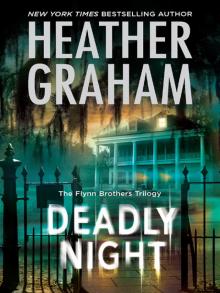 Deadly Night
Deadly Night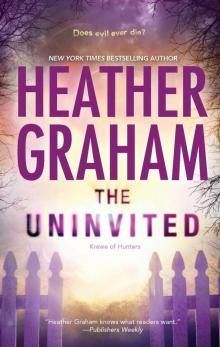 The Uninvited
The Uninvited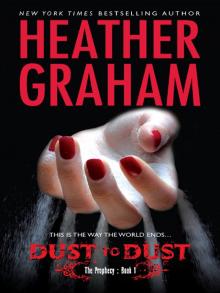 Dust to Dust
Dust to Dust Heart of Evil
Heart of Evil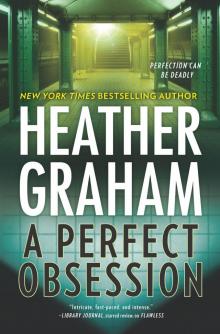 A Perfect Obsession
A Perfect Obsession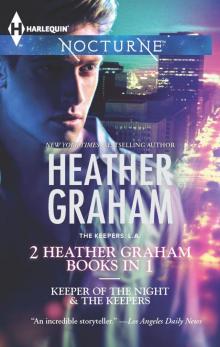 The Keepers
The Keepers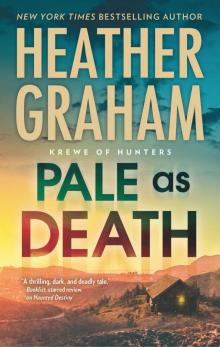 Pale as Death
Pale as Death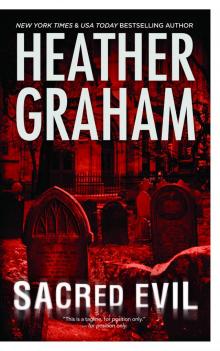 Phantom Evil
Phantom Evil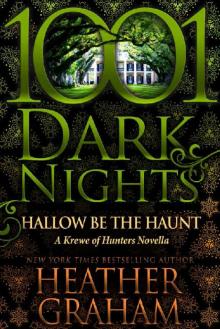 Hallow Be the Haunt
Hallow Be the Haunt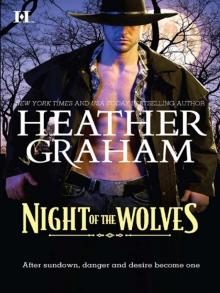 Night of the Wolves
Night of the Wolves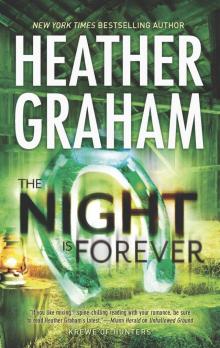 The Night Is Forever
The Night Is Forever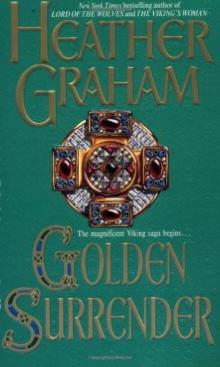 Golden Surrender
Golden Surrender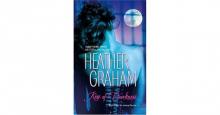 Kiss of Darkness
Kiss of Darkness Beneath a Blood Red Moon
Beneath a Blood Red Moon A Dangerous Game
A Dangerous Game Ghost Shadow
Ghost Shadow Long, Lean, and Lethal
Long, Lean, and Lethal Fade to Black
Fade to Black The Rising
The Rising And One Wore Gray
And One Wore Gray Rebel
Rebel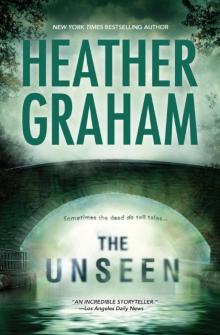 The Unseen
The Unseen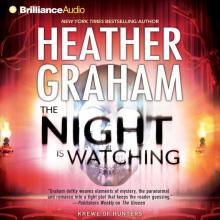 The Night Is Watching
The Night Is Watching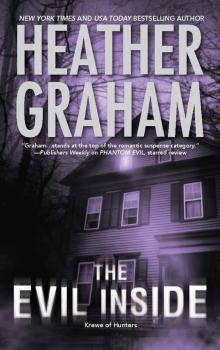 The Evil Inside
The Evil Inside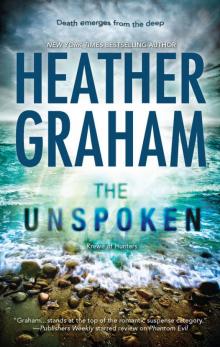 The Unspoken
The Unspoken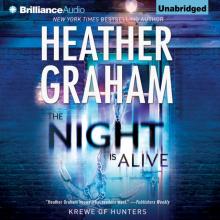 The Night Is Alive
The Night Is Alive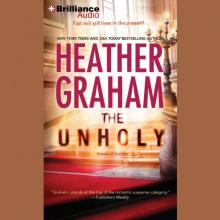 The Unholy
The Unholy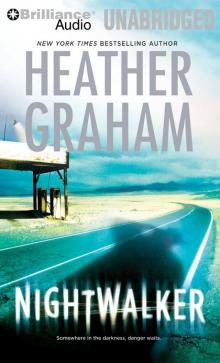 Nightwalker
Nightwalker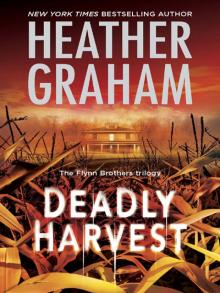 Deadly Harvest
Deadly Harvest An Angel for Christmas
An Angel for Christmas A Pirate's Pleasure
A Pirate's Pleasure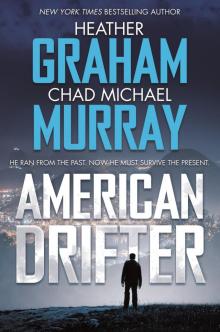 American Drifter
American Drifter Realm of Shadows
Realm of Shadows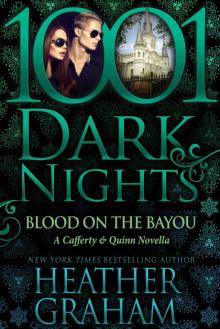 Blood on the Bayou
Blood on the Bayou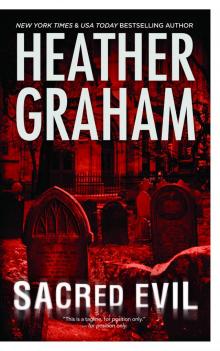 Sacred Evil
Sacred Evil Dying to Have Her
Dying to Have Her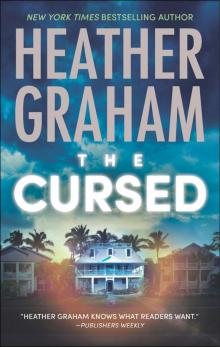 The Cursed
The Cursed Captive
Captive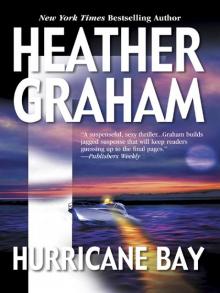 Hurricane Bay
Hurricane Bay Drop Dead Gorgeous
Drop Dead Gorgeous Ghost Memories
Ghost Memories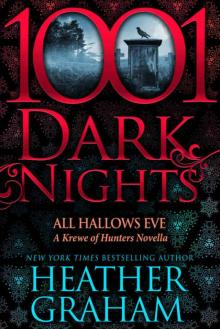 All Hallows Eve
All Hallows Eve Dying Breath
Dying Breath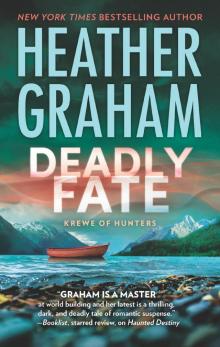 Deadly Fate
Deadly Fate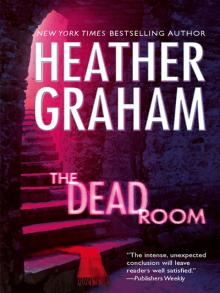 The Dead Room
The Dead Room Lord of the Wolves
Lord of the Wolves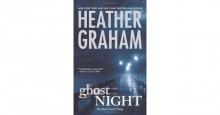 Ghost Night
Ghost Night Ghost Walk
Ghost Walk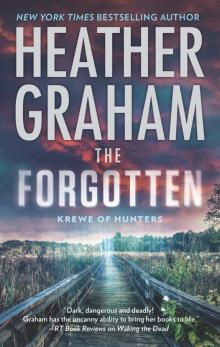 The Forgotten
The Forgotten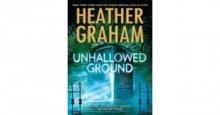 Unhallowed Ground
Unhallowed Ground One Wore Blue
One Wore Blue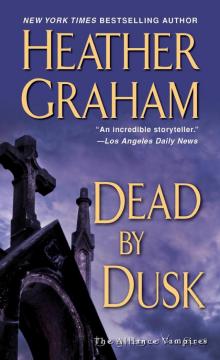 Dead By Dusk
Dead By Dusk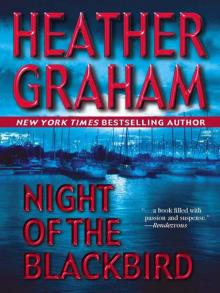 Night of the Blackbird
Night of the Blackbird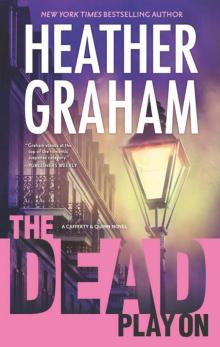 The Dead Play On
The Dead Play On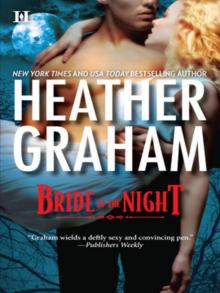 Bride of the Night
Bride of the Night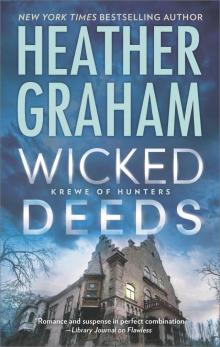 Wicked Deeds
Wicked Deeds The Forbidden
The Forbidden Triumph
Triumph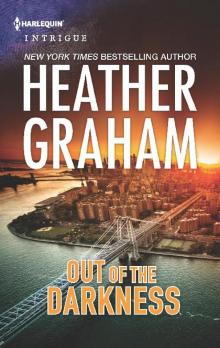 Out of the Darkness
Out of the Darkness Love Not a Rebel
Love Not a Rebel The Last Noel
The Last Noel Tall, Dark, and Deadly
Tall, Dark, and Deadly The Death Dealer
The Death Dealer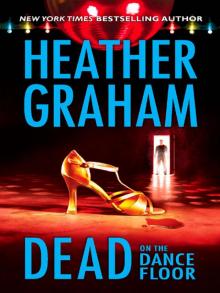 Dead on the Dance Floor
Dead on the Dance Floor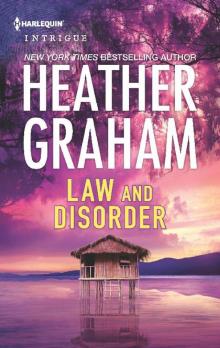 Law and Disorder
Law and Disorder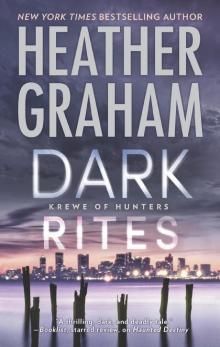 Dark Rites
Dark Rites New Year's Eve
New Year's Eve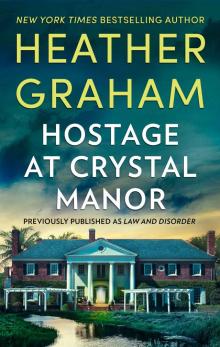 Hostage At Crystal Manor
Hostage At Crystal Manor And One Rode West
And One Rode West Home in Time for Christmas
Home in Time for Christmas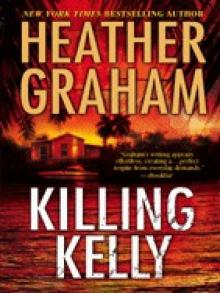 Killing Kelly
Killing Kelly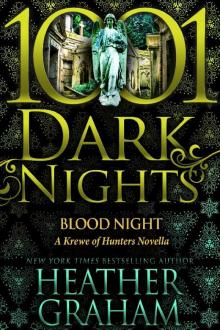 Blood Night
Blood Night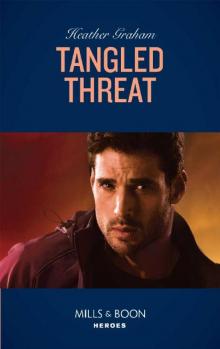 Tangled Threat (Mills & Boon Heroes)
Tangled Threat (Mills & Boon Heroes)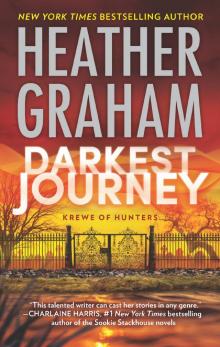 Darkest Journey
Darkest Journey Glory
Glory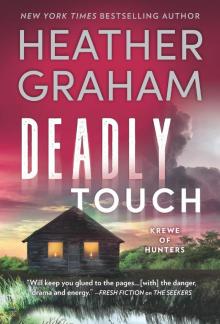 Deadly Touch
Deadly Touch An Unexpected Guest
An Unexpected Guest Night of the Vampires
Night of the Vampires Seize the Wind
Seize the Wind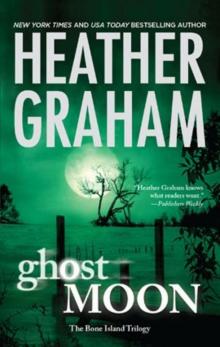 Ghost Moon
Ghost Moon The Vision
The Vision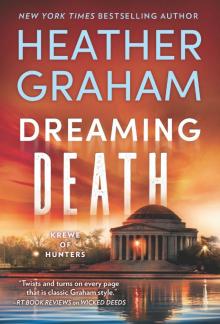 Dreaming Death
Dreaming Death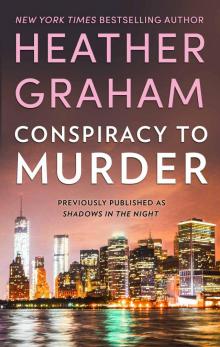 Conspiracy to Murder
Conspiracy to Murder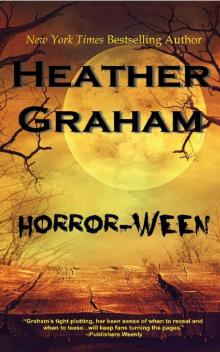 Horror-Ween (Krewe of Hunters)
Horror-Ween (Krewe of Hunters)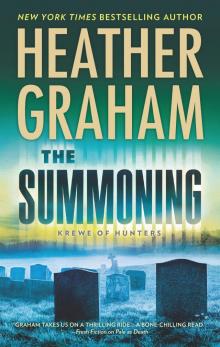 The Summoning
The Summoning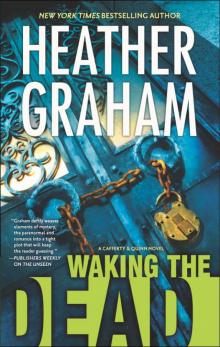 Waking the Dead
Waking the Dead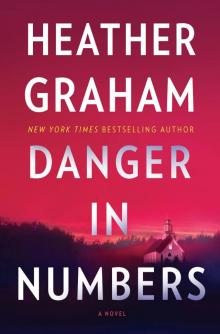 Danger in Numbers
Danger in Numbers The Hidden
The Hidden Sweet Savage Eden
Sweet Savage Eden Tangled Threat ; Suspicious
Tangled Threat ; Suspicious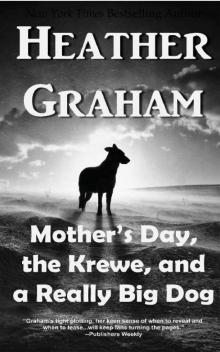 Mother's Day, the Krewe, and a Really Big Dog
Mother's Day, the Krewe, and a Really Big Dog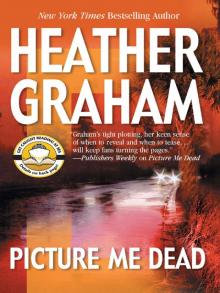 Picture Me Dead
Picture Me Dead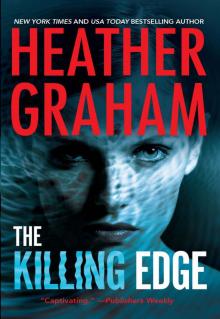 The Killing Edge
The Killing Edge St. Patrick's Day
St. Patrick's Day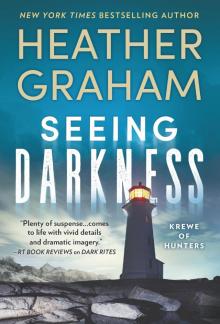 Seeing Darkness
Seeing Darkness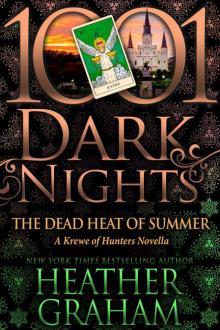 The Dead Heat of Summer: A Krewe of Hunters Novella
The Dead Heat of Summer: A Krewe of Hunters Novella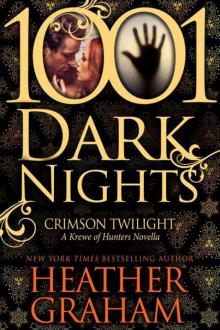 Crimson Twilight
Crimson Twilight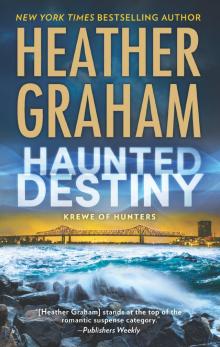 Haunted Destiny
Haunted Destiny Devil's Mistress
Devil's Mistress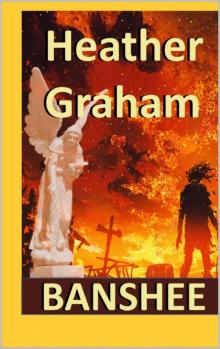 Banshee
Banshee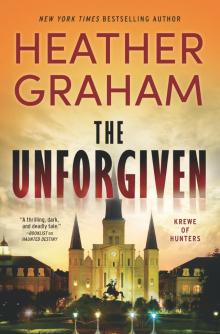 The Unforgiven
The Unforgiven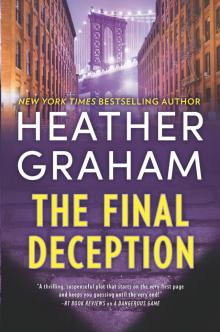 The Final Deception
The Final Deception A Horribly Haunted Halloween
A Horribly Haunted Halloween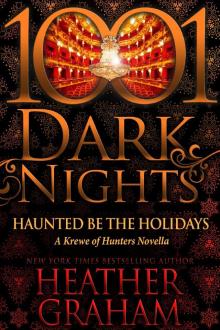 Haunted Be the Holidays
Haunted Be the Holidays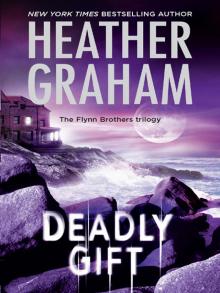 Deadly Gift
Deadly Gift Easter, the Krewe and Another Large White Rabbit
Easter, the Krewe and Another Large White Rabbit Haunted
Haunted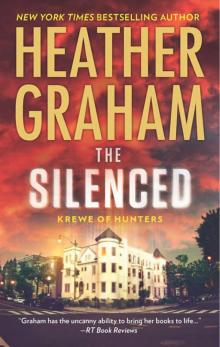 The Silenced
The Silenced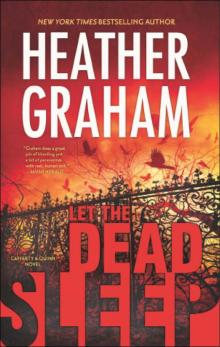 Let the Dead Sleep
Let the Dead Sleep Christmas, the Krewe, and Kenneth
Christmas, the Krewe, and Kenneth Big Easy Evil
Big Easy Evil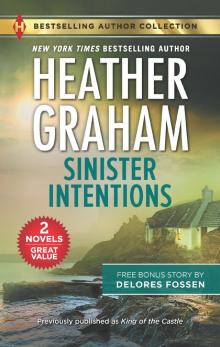 Sinister Intentions & Confiscated Conception
Sinister Intentions & Confiscated Conception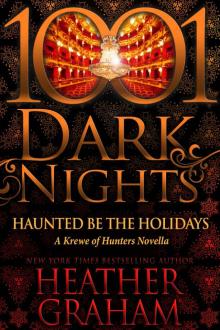 Haunted Be the Holidays: A Krewe of Hunters Novella
Haunted Be the Holidays: A Krewe of Hunters Novella Blood Red
Blood Red A Perilous Eden
A Perilous Eden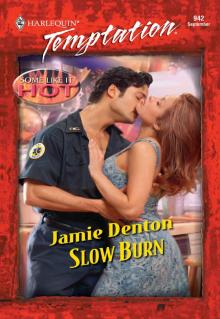 Slow Burn
Slow Burn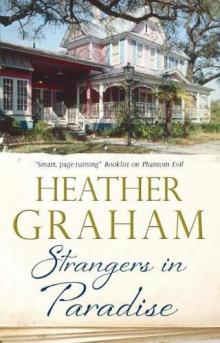 Strangers In Paradise
Strangers In Paradise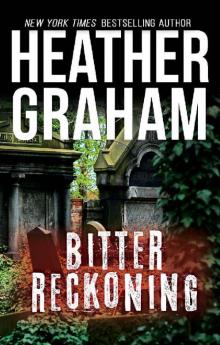 Bitter Reckoning
Bitter Reckoning Krewe of Hunters, Volume 1: Phantom Evil ; Heart of Evil ; Sacred Evil ; The Evil Inside
Krewe of Hunters, Volume 1: Phantom Evil ; Heart of Evil ; Sacred Evil ; The Evil Inside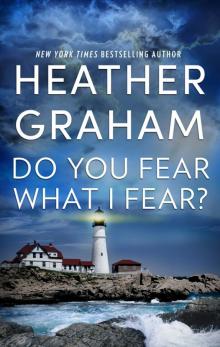 Do You Fear What I Fear?
Do You Fear What I Fear? The Face in the Window
The Face in the Window Krewe of Hunters, Volume 3: The Night Is WatchingThe Night Is AliveThe Night Is Forever
Krewe of Hunters, Volume 3: The Night Is WatchingThe Night Is AliveThe Night Is Forever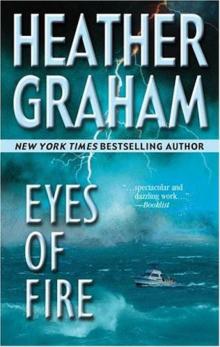 Eyes of Fire
Eyes of Fire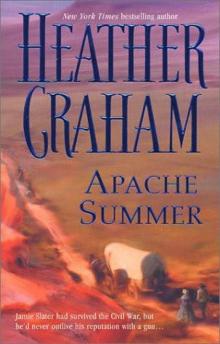 Apache Summer sb-3
Apache Summer sb-3 Sensuous Angel
Sensuous Angel In the Dark
In the Dark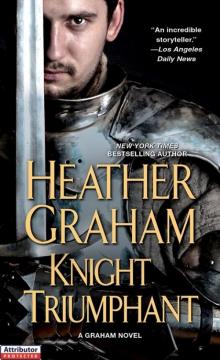 Knight Triumphant
Knight Triumphant Hours to Cherish
Hours to Cherish Tender Deception
Tender Deception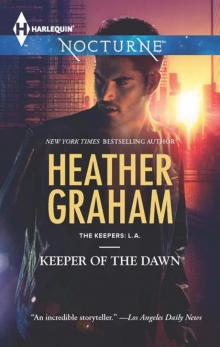 Keeper of the Dawn tkl-4
Keeper of the Dawn tkl-4 Apache Summer
Apache Summer Between Roc and a Hard Place
Between Roc and a Hard Place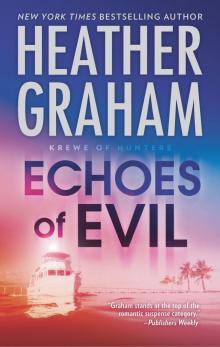 Echoes of Evil
Echoes of Evil The Game of Love
The Game of Love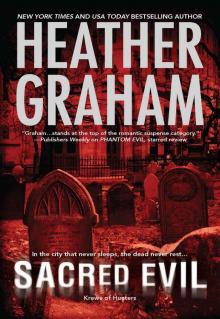 Sacred Evil (Krewe of Hunters)
Sacred Evil (Krewe of Hunters) Bougainvillea
Bougainvillea Tender Taming
Tender Taming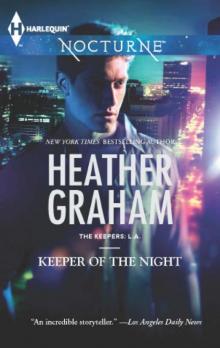 Keeper of the Night (The Keepers: L.A.)
Keeper of the Night (The Keepers: L.A.)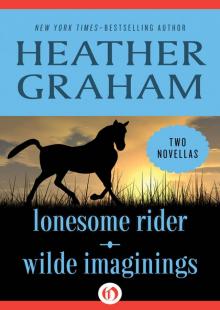 Lonesome Rider and Wilde Imaginings
Lonesome Rider and Wilde Imaginings Lucia in Love
Lucia in Love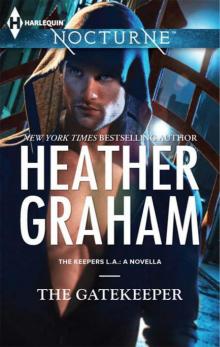 The Gatekeeper
The Gatekeeper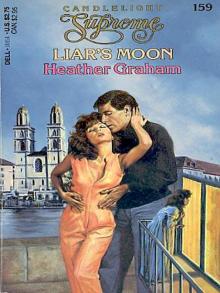 Liar's Moon
Liar's Moon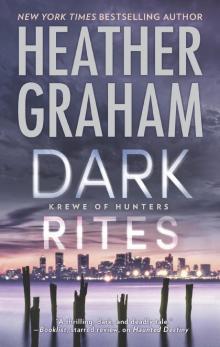 Dark Rites--A Paranormal Romance Novel
Dark Rites--A Paranormal Romance Novel A Season for Love
A Season for Love Krewe of Hunters, Volume 6: Haunted Destiny ; Deadly Fate ; Darkest Journey
Krewe of Hunters, Volume 6: Haunted Destiny ; Deadly Fate ; Darkest Journey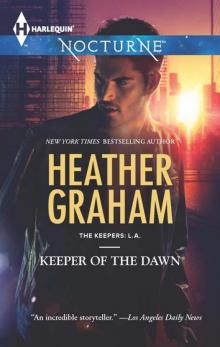 Keeper of the Dawn (The Keepers: L.A.)
Keeper of the Dawn (The Keepers: L.A.)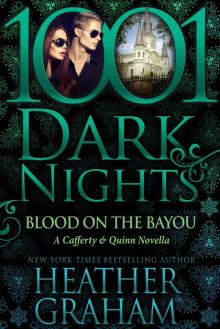 Blood on the Bayou: A Cafferty & Quinn Novella
Blood on the Bayou: A Cafferty & Quinn Novella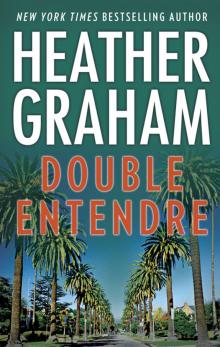 Double Entendre
Double Entendre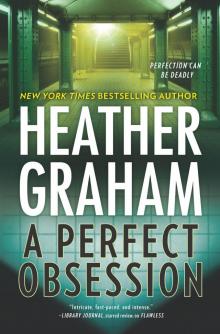 A Perfect Obsession--A Novel of Romantic Suspense
A Perfect Obsession--A Novel of Romantic Suspense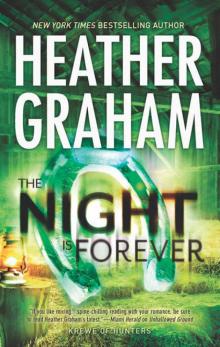 The Night Is Forever koh-11
The Night Is Forever koh-11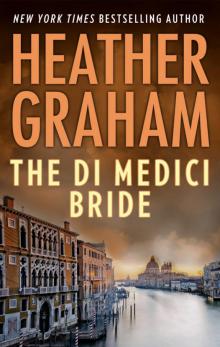 The Di Medici Bride
The Di Medici Bride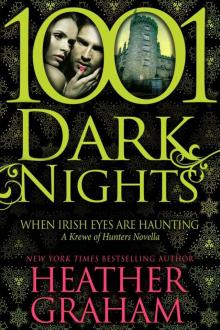 When Irish Eyes Are Haunting: A Krewe of Hunters Novella
When Irish Eyes Are Haunting: A Krewe of Hunters Novella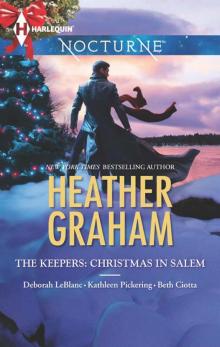 The Keepers: Christmas in Salem: Do You Fear What I Fear?The Fright Before ChristmasUnholy NightStalking in a Winter Wonderland (Harlequin Nocturne)
The Keepers: Christmas in Salem: Do You Fear What I Fear?The Fright Before ChristmasUnholy NightStalking in a Winter Wonderland (Harlequin Nocturne)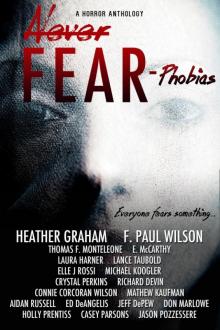 Never Fear
Never Fear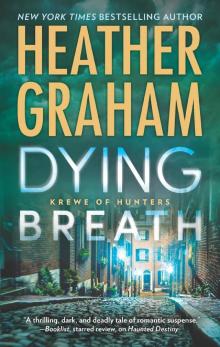 Dying Breath--A Heart-Stopping Novel of Paranormal Romantic Suspense
Dying Breath--A Heart-Stopping Novel of Paranormal Romantic Suspense If Looks Could Kill
If Looks Could Kill This Rough Magic
This Rough Magic Heather Graham's Christmas Treasures
Heather Graham's Christmas Treasures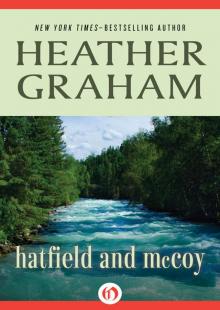 Hatfield and McCoy
Hatfield and McCoy The Trouble with Andrew
The Trouble with Andrew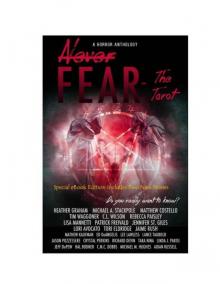 Never Fear - The Tarot: Do You Really Want To Know?
Never Fear - The Tarot: Do You Really Want To Know?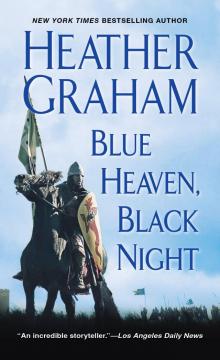 Blue Heaven, Black Night
Blue Heaven, Black Night Forbidden Fire
Forbidden Fire Come the Morning
Come the Morning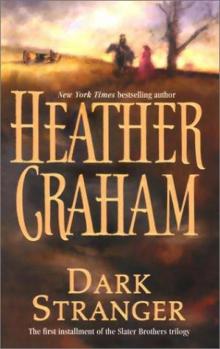 Dark Stranger sb-4
Dark Stranger sb-4 Lie Down in Roses
Lie Down in Roses Red Midnight
Red Midnight Krewe of Hunters Series, Volume 5
Krewe of Hunters Series, Volume 5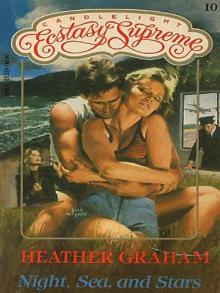 Night, Sea, And Stars
Night, Sea, And Stars Snowfire
Snowfire Quiet Walks the Tiger
Quiet Walks the Tiger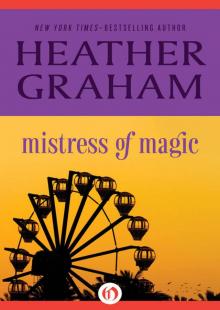 Mistress of Magic
Mistress of Magic For All of Her Life
For All of Her Life Runaway
Runaway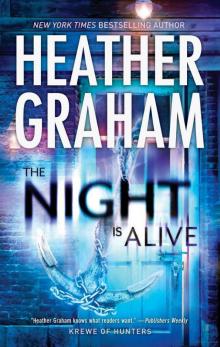 The Night Is Alive koh-10
The Night Is Alive koh-10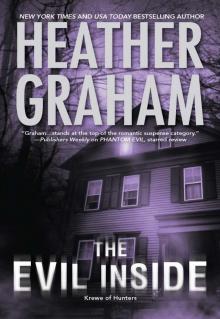 The Evil Inside (Krewe of Hunters)
The Evil Inside (Krewe of Hunters)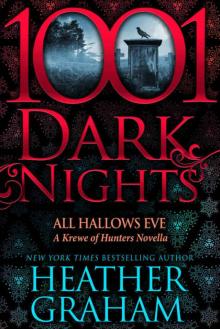 All Hallows Eve: A Krewe of Hunters Novella (1001 Dark Nights)
All Hallows Eve: A Krewe of Hunters Novella (1001 Dark Nights) Tomorrow the Glory
Tomorrow the Glory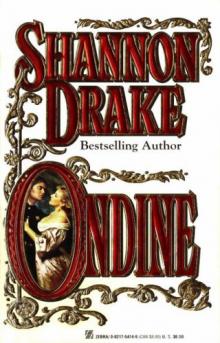 Ondine
Ondine Angel of Mercy & Standoff at Mustang Ridge
Angel of Mercy & Standoff at Mustang Ridge Bride of the Tiger
Bride of the Tiger When Next We Love
When Next We Love Heather Graham Krewe of Hunters Series, Volume 4
Heather Graham Krewe of Hunters Series, Volume 4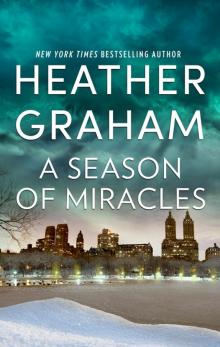 A Season of Miracles
A Season of Miracles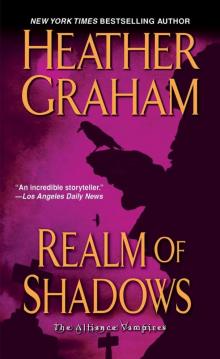 Realm of Shadows (Vampire Alliance)
Realm of Shadows (Vampire Alliance)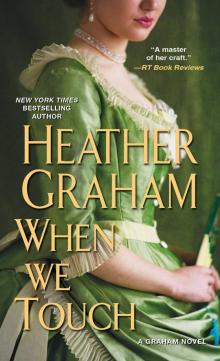 When We Touch
When We Touch Serena's Magic
Serena's Magic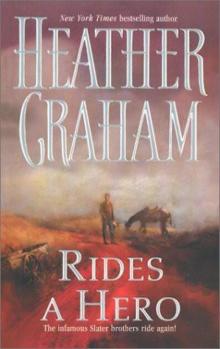 Rides a Hero sb-2
Rides a Hero sb-2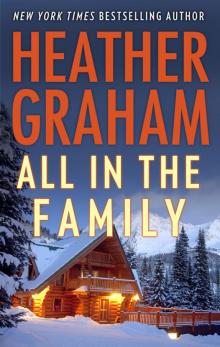 All in the Family
All in the Family Handful of Dreams
Handful of Dreams A Stranger in the Hamptons
A Stranger in the Hamptons Krewe of Hunters, Volume 2: The Unseen ; The Unholy ; The Unspoken ; The Uninvited
Krewe of Hunters, Volume 2: The Unseen ; The Unholy ; The Unspoken ; The Uninvited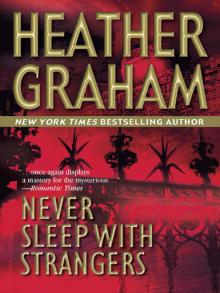 Never Sleep With Strangers
Never Sleep With Strangers Eden's Spell
Eden's Spell A Magical Christmas
A Magical Christmas Forever My Love
Forever My Love King of the Castle
King of the Castle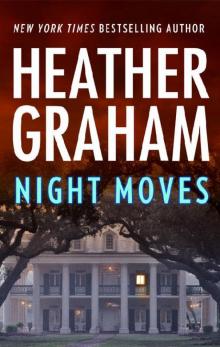 Night Moves (60th Anniversary)
Night Moves (60th Anniversary) The Island
The Island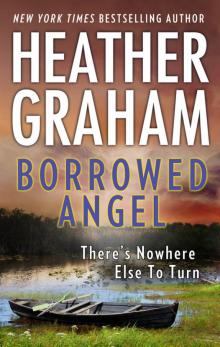 Borrowed Angel
Borrowed Angel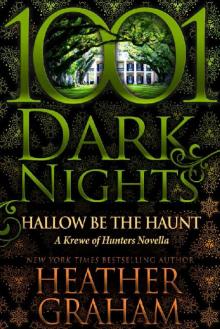 Hallow Be the Haunt: A Krewe of Hunters Novella
Hallow Be the Haunt: A Krewe of Hunters Novella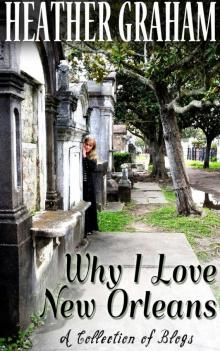 Why I Love New Orleans
Why I Love New Orleans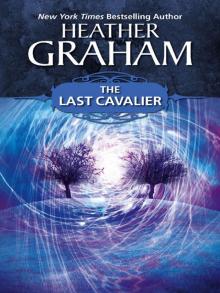 The Last Cavalier
The Last Cavalier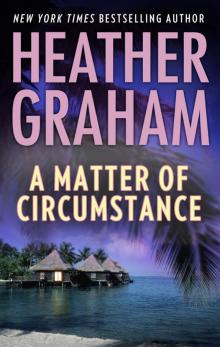 A Matter of Circumstance
A Matter of Circumstance Heather Graham's Haunted Treasures
Heather Graham's Haunted Treasures Tempestuous Eden
Tempestuous Eden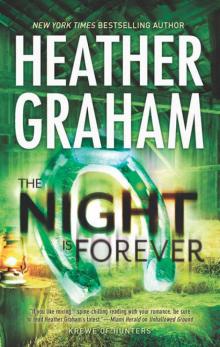 Krewe 11 - The Night Is Forever
Krewe 11 - The Night Is Forever